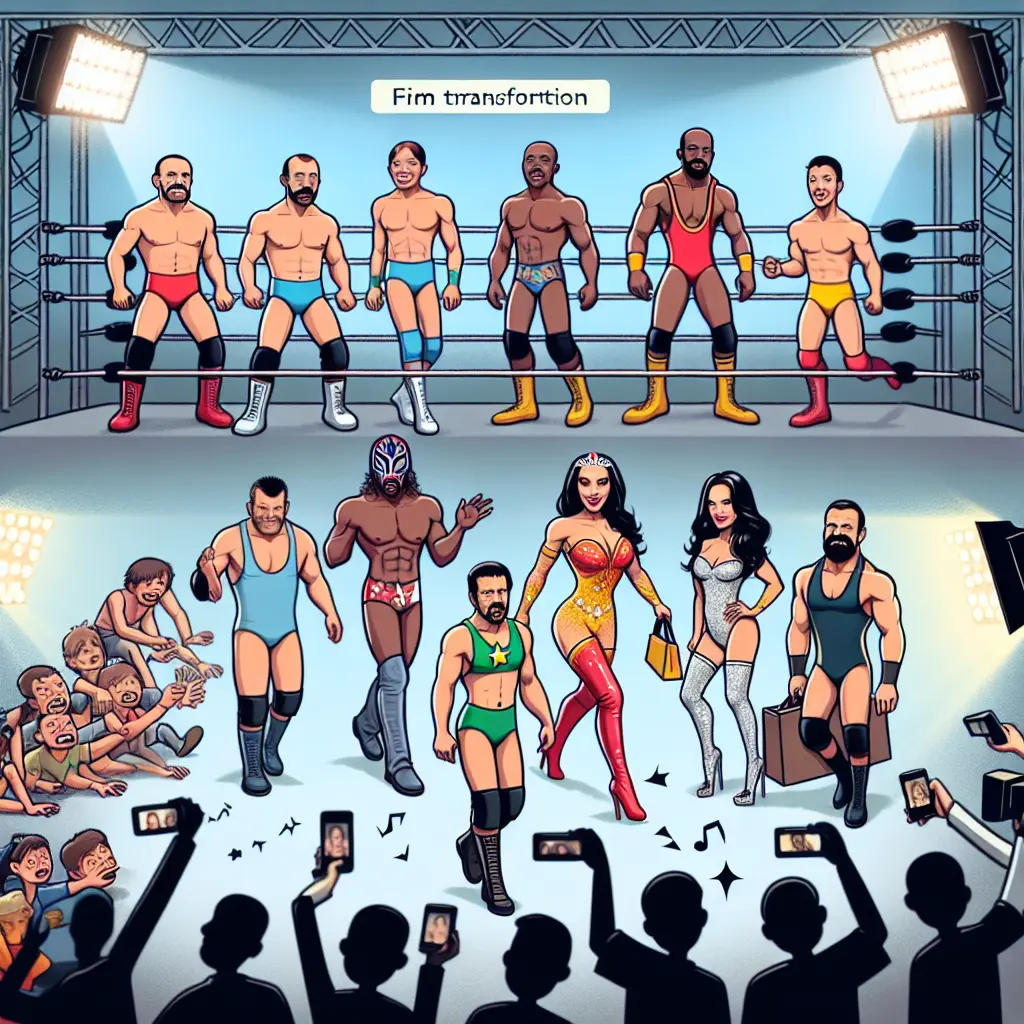
Wrestlers have long captivated audiences with their larger-than-life personas, thrilling athleticism, and dramatic storylines. But in recent years, the transformation of wrestlers into mainstream entertainment icons has been nothing short of spectacular. This phenomenon is not just about athletes performing in the ring; it's about charismatic personalities who have successfully transitioned to become titans of the entertainment industry. Here, we explore this fascinating evolution, highlighting how wrestlers have become synonymous with mainstream entertainment, from Hollywood blockbusters to influential cultural moments.
Wrestlers in Mainstream Entertainment: A New Arena of Stardom
The career transition for wrestlers has seen them leap from the wrestling ring to film sets, becoming household names beyond the confines of wrestling promotions like WWE. Dwayne "The Rock" Johnson is perhaps the most exemplary figure in this regard. Once known for his electrifying presence in WWE, he is now one of Hollywood’s top actors, known for his roles in franchises like "Fast and Furious" and "Jumanji." His journey symbolizes the ultimate "from wrestling ring to film set" success story, illustrating the massive potential for wrestlers in movies and TV.
The Cultural Impact of Wrestling on Pop Culture
Wrestling's influence on pop culture is profound, shaping not just entertainment but also the broader cultural dialogue. Wrestlers as cultural icons influence fashion, language, and social attitudes. Their catchphrases and personas are often adopted by fans and non-fans alike, demonstrating the extensive impact of wrestling on pop culture.
Recent Developments and Integration into Various Media Forms
Wrestlers are continually expanding their reach within mainstream media. A recent announcement by Activision revealed an exciting crossover between Call of Duty and WWE, which promises to blend the thrilling worlds of video gaming and wrestling source. This collaboration follows the trend of integrating wrestling stars into various forms of entertainment, further solidifying their status as versatile entertainment icons.
Moreover, Netflix's decision to feature Joe Rogan’s comedy special as its next live event shows the streaming giant's strategy to diversify content and attract diverse audiences - possibly those who follow Rogan’s commentary in UFC, another combat sport with ties to wrestling source.
Wrestlers Making Political and Social Statements
Wrestlers have also ventured into more politicized spaces. The recent news of Hulk Hogan speaking at the RNC convention, where he dramatically expressed his support for Donald Trump, showcases how celebrity wrestlers engage with and shape public perception beyond entertainment source. Whether one agrees with their positions or not, their involvement in such events speaks to their influence as public figures.
The Evolution of Public Perception and Media Careers
The transition of wrestlers into media careers is closely tied to changing public perceptions. Once stereotyped merely as athletes or entertainers, many wrestlers have rebranded themselves as multifaceted personalities capable of acting, commentary, and even business entrepreneurship. John Cena’s surprise retirement from WWE reflects a strategic shift to focus on his burgeoning career in film and television, following appearances in movies like "Trainwreck" and "Bumblebee" source.
Looking Forward: The Future of Wrestlers in Entertainment
The trajectory for wrestlers seems increasingly expansive. Events like WWE SummerSlam 2024 not only serve as platforms for wrestling but also as cultural phenomena that offer a glimpse into the evolving narrative around wrestling and entertainment source. As wrestlers continue to navigate new industries, their roles as entertainers are likely to grow, potentially changing how we understand celebrity and entertainment.
Conclusion: Wrestlers as Renaissance Figures of Modern Entertainment
The transformation of wrestlers into mainstream entertainment icons represents a broader shift in the landscape of celebrity culture. Wrestlers are no longer just athletes; they are actors, commentators, social influencers, and sometimes political figures. Their ability to adapt and thrive in various entertainment mediums speaks to their unparalleled versatility and enduring appeal.
As we look at the diverse paths wrestlers take—from participating in major political conventions to starring in blockbuster films—it's clear that they are redefining what it means to be an entertainer in the 21st century. Their journey from the ring to the screen, and beyond, continues to inspire and shape the entertainment landscape.
Thank you for joining me on this exploration of how wrestlers transform and transcend their origins to become icons of modern culture. It’s a testament to their hard work, charisma, and the ever-changing public appetite for larger-than-life characters that both entertain and inspire.
Tyler Benson